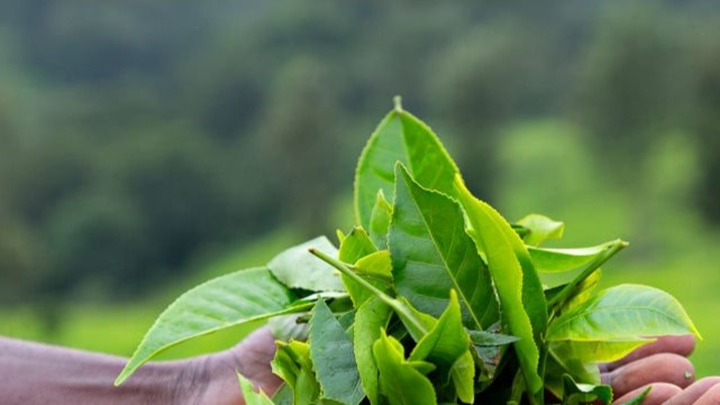
Organic Farming for better Community life in Uganda
Donation protected
Moin, mein Name ist Clarissa und ich sammle Geld für einen Freund aus Uganda, Edson, der ein großartiges Projekt plant, um die ugandische Landwirtschaft voranzutreiben und so das Leben der Communities zu verbessern und in Bildung zu investieren. Die folgende Beschreibung ist eine von ihm verfasste Zusammenfassung.
PROJECT OVERVIEW.
Uganda is an agricultural country with about 80% of its population being illiterates. It’s located in East Africa and has a population of about 45 million people. The education standards are really poor except in a few urban areas whose schools are extremely expensive leaving quality education only in the hands of the rich. The major economic activity is traditional agriculture and majority of the farmers are subsistence farmers which explains why despite being the majority of the population, they are the poorest in the country. All these areas identified need to be addressed to see a real in charge in the county and transform the lives of the natives. We have a vision for a project that will multiply itself in the long run bringing hope, education and variety jobs to a seemingly hopeless society.
Our aim is to invest in organic (biological) agricultural production and this is to provide a source of income to support among others the activities of the primary school. The majority natives are farmers who rely on fertilizers that are harmful to health and affect quality of crop yields. Therefore, this farm will also be used as a model farm to teach various farmers organic farming practices so as to shift their mindsets from subsistence farming to commercial farming so as to increase their household incomes so as to help them fight poverty through training and conferences on the farm. This is also intended to provide jobs to Ugandans as well as train them for taking up their own entrepreneurship ventures from their salary savings. This will enable them to provide employment as well to other individuals hence widening the impact of the project.
The farm will adopt organic farming practices where no fertilizers or chemical sprays will be used at all. Rather, the farming will be entirely biological with minimum tillage to the soil. Manure, ash and mulches will be used to ensure soil fertility and improved yields. We have already tested this method of farming and it has proved to be extremely effective as it yields double or triple the normal harvest quantities local farmers normally have. For example, one acre of maize yields about 900kgs of maize seeds, however, with organic farming this yields about 2-3 tons of harvest on the same acre. This is because of use of manure and ash with two layers of mulch covering on top that ensures fertility and high quality and quantity yields.
We therefore seek to do this on large scale and if this organic farming is taught to farmers who are the majority in the country, they will have better yields for sale hence rising their household incomes and crossing the poverty line threshold. The large-scale farming will enable us gain adequate funds for sustainability of our project.
Agricultural Wing:
* Purchase 10 acres of land for a large-scale modern organic farm and this will expand gradually to have branches in at least very region of the country. No fertilizers or chemical sprays will be used at all in our farms. They will rely on natural substances such as manure and mulches to survival any pests and diseases that attack crops. We have already done this on small scale and the yields we got were abundant and we believe this done on large scale will generate enough revenue to support our activities.
* Integrate crop production and animal husbandry to reduce costs of production and maximize profits. For example, after maize seeds harvested are grinned into flour, about 20-30% will be remains referred to as maize bran. These are quality feeds to poultry and this will mean less money is incurred in feeding the birds. On the other hand, the waste from poultry will be used as manure in our farms and this means we won’t incur costs in trying to buy manure for our organic farming practices.
* Use irrigation systems for consistent year-round production as to increase gains. This is the most challenge affecting farmers in the societies, the rain season is unpredictable and dynamic which causes uncertainties and losses to farmers. Therefore, by use of an irrigation system, our farms will ensure consistent production and supply of essential food commodities throughout the whole year.
* A lot of money is lost by farmers because of no value addition to the products. This leaves them poor because of zero value addition. We intend to purchase equipment to add value to our products on the farm before sale. These products yield more money. We shall allow farmers we have trained in organic farming to also access these facilities at a cheaper price so as to help them gain more from their value-added products. We shall therefore have a section of value addition for our different products on the farm. For example, a maize mill machine shall be bought to grind maize seeds from the field into posho, which we shall package and sell as a finished product.
* Therefore, Implementation of value addition processes on the farms to maximize profits as explained above shall be done.
Social Impact:
* Empower individuals through income-generating activities and training for improved standards of living.
* Reduce poverty and improve living standards through increasing awareness and empowerment programs.
* Employ hundreds of workers across our various activities of the project to improve their living standards.
* Resettle street children and provide education and vocational training to them in the long run after sustainability of our activities is achieved.
* Enhance community cohesion and social inclusion through our various programs.
Organizer
Clarissa Grell
Organizer
Bevern, Schleswig-Holstein